Search
 Video
Video
Ross Procedure for Aortic Valve Disease: Why It's the Superior Option in Younger Patients
Cardiac surgeon Marko T. Boskovski, MD, MHS, MPH, provides compelling data on the ultimate failure of traditional valve replacements to support the lifespan of physically active non-elderly adults and describes the value of the Ross procedure.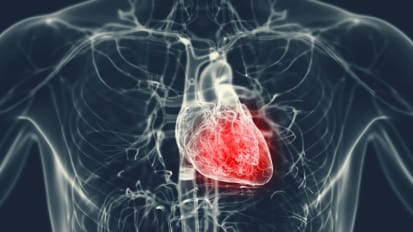 Video
Video
Currents in Myocarditis: A Fresh Look at Causes, Classification and Care
COVID-19 infections and vaccines, as well as certain cancer treatments, can play roles in myocarditis – whose incidence has increased about tenfold in recent years. Video
Video
Everyday Heart Disease Prevention: An Update on Risk Assessment and Clinical Strategies
With heart disease deaths on the upswing since 2010, primary care providers must routinely develop individualized plans to protect their patients from atherosclerosis. Video
Video
A Fresh Look at Lipids: Atherosclerosis Prevention in 2023
Cardiologist Clifton Watt, MD, presents an update on lipoproteins, including how genetic factors can impact test results and whether pre-measurement fasting actually matters. Video
Video
Don’t Miss a Beat on A-fib: How to Make the Right Plans for Individual Patients
This practical, data-fueled talk from Edward P. Gerstenfeld, MD, MS, FACC, chief of the UCSF Cardiac Electrophysiology and Arrhythmia Service, will help PCPs better understand how to assess stroke risk; make treatment decisions...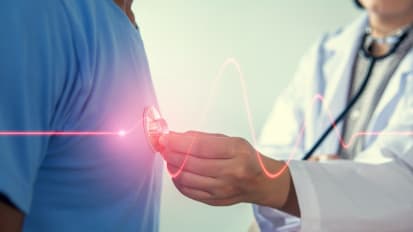 Video
Video
Common Vascular Conditions: Simple Screening Rules and Better Treatment Tactics
Vascular surgeon Shant Vartanian, MD, presents an update on understanding and managing abdominal aortic aneurysms and peripheral artery disease – prevalent age-linked disorders with significant morbidity and mortality. Video
Video
Learning and Lowering Cardiovascular Risk: Effective, Efficient Strategies
This data-driven presentation from cardiologist Eveline Stock, MD, will give you a better grasp on how to identify an at-risk patient.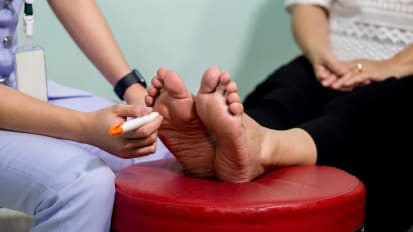 Video
Video
Keep Diabetic Patients on Their Feet: Keys to Identifying Limb-Threatening Issues
In a country where more than 9% of adults have diabetes, Alexander Reyzelman, DPM, discusses the implications for those who also have peripheral vascular disease.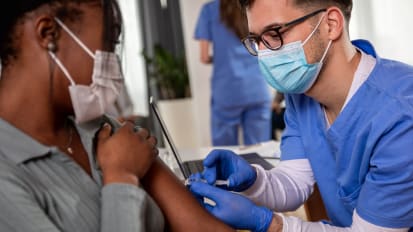 Video
Video
Getting to the Heart of COVID: Do Infections or Vaccines Cause Cardiac Harm?
Cardiologist Clifton Watt, MD, offers new insights on the pathogenesis of heart problems resulting from COVID; breaks down the evidence on whether novel treatments – neutralizing antibodies and antivirals – have therapeutic or preventive value; then presents a risk-benefit analysis for the available vaccines, incorporating new data. Video
Video
What’s Hidden in the Female Heart: Keys to Identifying Women at Risk for Cardiovascular Disease
Cardiologist Jie Yang, MD, breaks down the evidence by age group and offers actionable steps for helping patients lower their risk.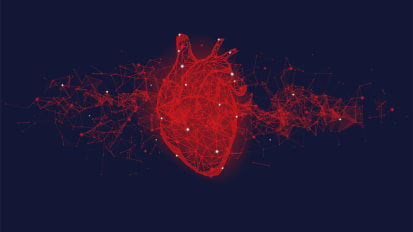 Video
Video
Reshaping Care for Heart Failure: The Promise of New Drugs and Devices
Heart failure is increasingly prevalent and continues to have a high mortality rate, yet the future isn’t bleak. Cardiologist Liviu Klein, MD, MS, director of the UCSF Mechanical Circulatory Support Program, presents cutting-edge therapeutic options, including drugs, surgical implants and advanced monitoring systems.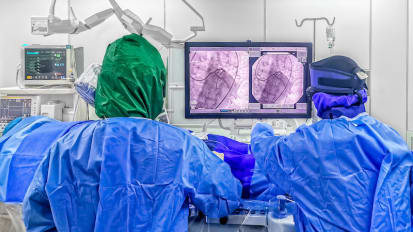 Video
Video
COVID-19 Consequences: Is the Ticker a Ticking Time Bomb?
Cardiologist Clifton Watt, MD, explores what’s now known about the SARS-CoV-2 variants as well as COVID-related multisystem inflammatory disorders, explains COVID’s potential for residual effects on the heart, and offers help with identifying COVID “long haulers.” Bonus: update on outpatient therapeutics.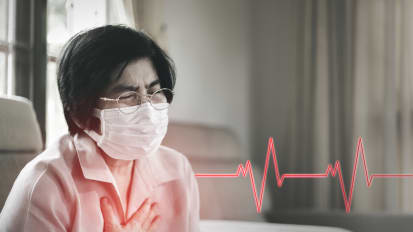 Video
Video
Comorbidities and COVID: Care for Patients With Heart Disease and Other Conditions
Breaking down the latest stats, cardiologist Clifton Watt, MD, sheds light on which chronic conditions raise the risk of serious consequences from COVID-19 infection. Video
Video
Keep Them on Their Feet: Vigilant Diabetic Care Saves Limbs
In response to rising rates of diabetes and related amputations, the co-directors of UCSF’s Center for Limb Preservation – which has a limb salvage rate of 92 percent – present a quick guide to detecting amputation risk. They include COVID-specific advice to prevent delays in diagnosis and referral. Video
Video
A Common Threat to Life and Limb: Detect and Manage Peripheral Artery Disease
Michael S. Conte, MD, UCSF’s chief of vascular surgery, discusses the growing problem of PAD, subtleties of PAD signs, useful testing techniques, which patients to treat, therapeutic options, and how to educate your patients – especially diabetics – to safeguard their health.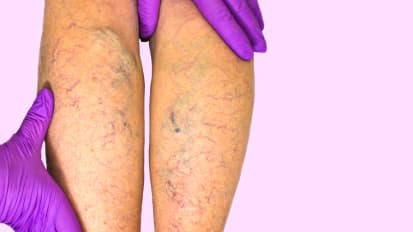 Video
Video
Chronic Venous Insufficiency: Caring for a Common and Disabling Condition
Proper classification and appropriate treatment of CVI will relieve pain and improve quality of life. Interventional radiologist Alexander Lam, MD, presents current guidelines and therapeutic options.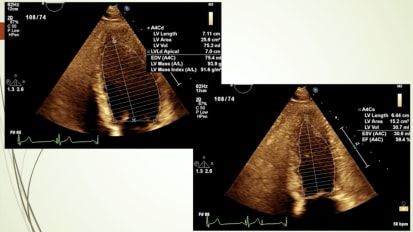 Video
Video
Introduction to Strain Imaging Echocardiography
Clifton Watt, MD, explains that echocardiography is one of the most common noninvasive tools used in cardiology to date, while strain imaging is a supplementary way to assess myocardial function. Video
Video
Using VADs in Advanced Heart Failure: Caring for a Growing Population
With heart failure’s prevalence and poor prognosis, it’s important to understand the difference VADs can make. Cardiologist Dr. Liviu Klein discusses the latest devices, implantation techniques and monitoring methods, as well as outcomes and best candidates.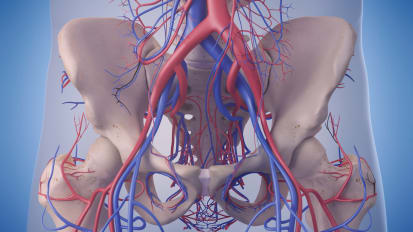 Video
Video
Optimize Spinal Surgery Outcomes Through Teamwork
Vascular surgeon Dr. Charles Eichler discusses UCSF’s success with including vascular surgeons in lumbar fusion procedures and finding the least invasive approach for each patient. Symposium
Symposium
UCSF 2019 Heart & Vascular Symposium
Excellence in heart and vascular services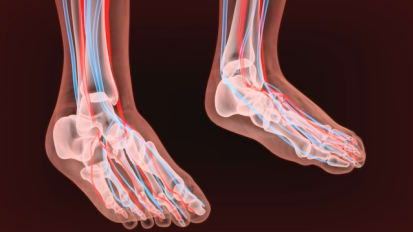 Video
Video
Limb Preservation for Patients with Diabetic Foot Ulcers
Michael S. Conte, MD, provides an overview of the various noncardiac and extracranial blood vessel conditions treated by the Division of Vascular & Endovascular Surgery.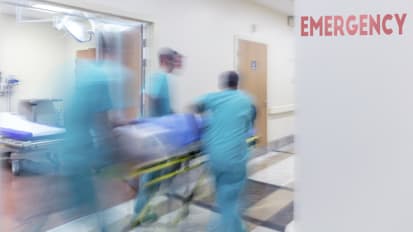 Video
Video
Redefining Sudden Cardiac Death
Zian H. Tseng, MD, discusses the conclusions of the UCSF Prospective Countywide Surveillance and Autopsy Characterization of Sudden Cardiac Death (POST SCD) Study. Video
Video
Minimally-Invasive Mitral Valve Surgery
Tobias Deuse, MD, discusses the advantages of minimally invasive approaches for the treatment of mitral valve insufficiency. Video
Video
Hypertrophic Cardiomyopathy: Mostly Benign, Sometimes Lethal
Theodore Abraham, MD, discusses hypertrophic cardiomyopathy, a common inherited heart disease that is usually benign, but can be fatal in up to 10 percent of cases.


